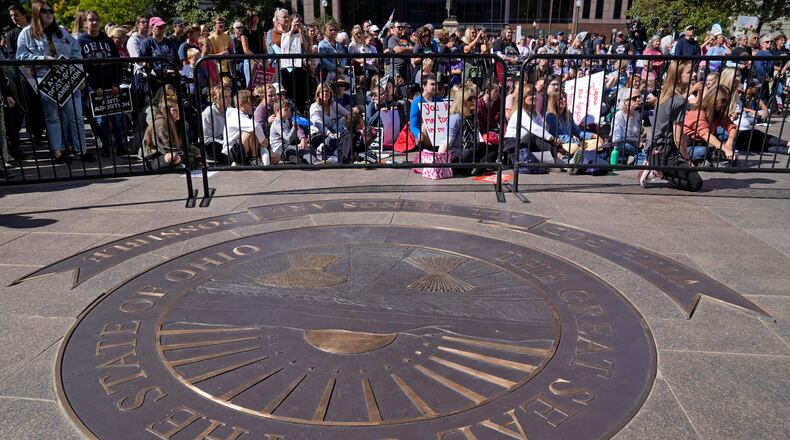Go here for a full report on proposed legislation that would change how the Constitution is amended.
There were 16 citizen-led amendments on the ballot since 2000, only five of which passed. The Ohio General Assembly has proposed 17 amendments since 2000, of which 15 passed.
Below are the constitutional amendments Ohioans voted on this century, who proposed them, and how they fared
Voter-initiated petitions:
2002
To allow some people convicted of drug possession or use to choose treatment instead of jail. Failed, 33% to 67%
2004
To define marriage as between one man and one woman. Passed, 62% to 38%
2005
To allow all voters to use absentee ballots in all elections. Failed, 37% to 63%
To limit political contributions and revise campaign disclosure rules. Failed, 33% to 67%
To create a state legislative redistricting commission. Failed, 30% to 70%
To create a new board to administer elections. Failed, 30% to 70%
2006
To raise the minimum wage. Passed, 57% to 43%
To allow limited gambling to fund education. Failed, 43% to 57%
To ban indoor smoking with some exceptions. Failed, 36% to 64%
2008
To allow a casino near Wilmington, with tax revenue distributed statewide. Failed, 38% to 62%
2009
To allow one casino each in Cincinnati, Cleveland, Columbus and Toledo, with tax revenue distributed statewide. Passed, 53% to 47%
2011
To ensure Ohioans can choose their healthcare and coverage. Passed, 66% to 34%
To create a state commission for legislative redistricting. Failed, 37% to 63%
2015
Grant a monopoly for the commercial production and sale of recreational and medicinal marijuana. Failed, 36% to 64%
2017
Rights for crime victims. Passed, 83% to 17%
2018
To reduce penalties for obtaining, possessing and using illegal drugs. Failed, 37% to 63%
Proposed by General Assembly:
2000
To issue bonds or for environmental conservation and revitalization projects. Passed, 57% to 43%
2003
To support research and create jobs. Failed, 49% to 51%
2005
To create jobs and stimulate growth. Passed, 54% to 46%
2008
To set earlier filing deadlines for statewide ballot issues. Passed, 69% to 31%
To issue bonds for continuing the Clear Ohio environmental program. Passed, 69% to 31%
To protect property rights in water features. Passed, 72% to 28%
2009
To issue bonds to compensate veterans of the Afghanistan and Iraq wars. Passed, 72% to 28%
To create the Ohio Livestock Care Standards Board and establish standards of care for livestock and poultry. Passed, 64% to 36%
2010
To issue more bonds to extend the Ohio Third Frontier Program. Passed, 62% to 38%
To move the authorized Columbus casino location. Passed, 68% to 32%
2011
To raise the maximum age for election or appointment as a judge, eliminate the General Assembly’s authority to establish courts of conciliation and eliminate the governor’s authority to appoint a supreme court commission. Failed, 38% to 62%
2014
To issue bonds for public infrastructure and capital improvements. Passed, 65% to 35%
2015
To create a bipartisan public process for legislative redistricting. Passed, 71% to 29%
To protect the initiative process from being used for personal economic gain. Passed, 51% to 49%
2018
To create a bipartisan public process for drawing congressional districts. Passed, 75% to 25%
2022
To require courts to consider public safety during bail hearings. Passed, 78% to 22%
To forbid noncitizens from voting in any state or local elections. Passed, 77% to 23%
About the Author



